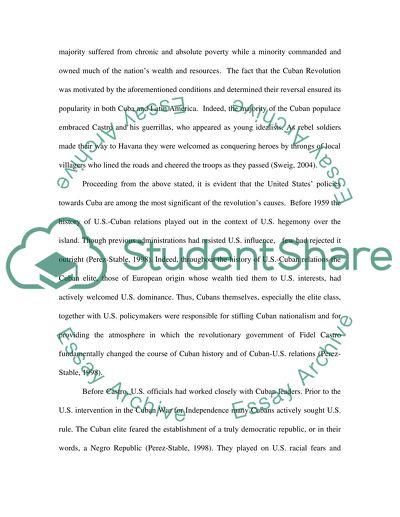Cite this document
(“Cuban Revolution Essay Example | Topics and Well Written Essays - 1000 words”, n.d.)
Retrieved from https://studentshare.org/miscellaneous/1518302-cuban-revolution
Retrieved from https://studentshare.org/miscellaneous/1518302-cuban-revolution
(Cuban Revolution Essay Example | Topics and Well Written Essays - 1000 Words)
https://studentshare.org/miscellaneous/1518302-cuban-revolution.
https://studentshare.org/miscellaneous/1518302-cuban-revolution.
“Cuban Revolution Essay Example | Topics and Well Written Essays - 1000 Words”, n.d. https://studentshare.org/miscellaneous/1518302-cuban-revolution.


